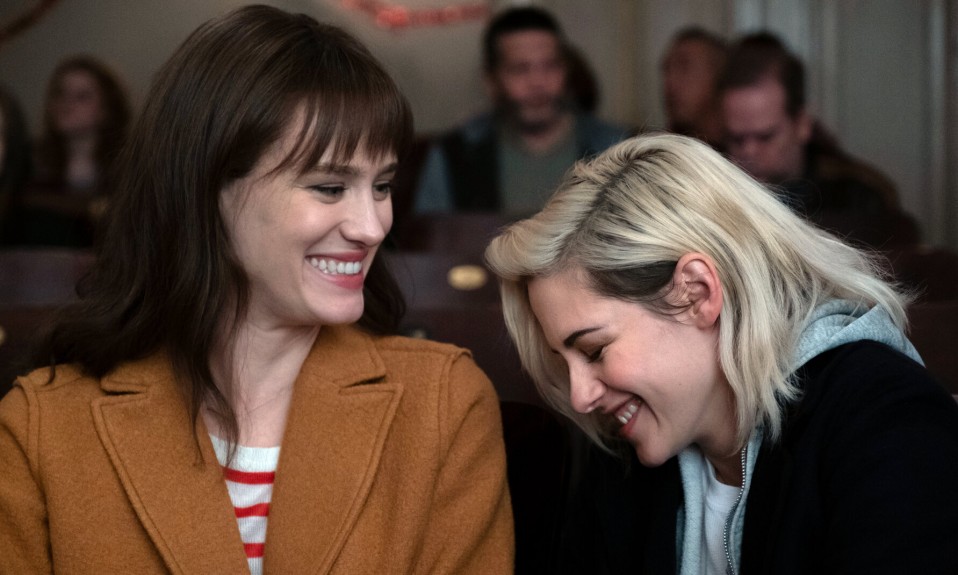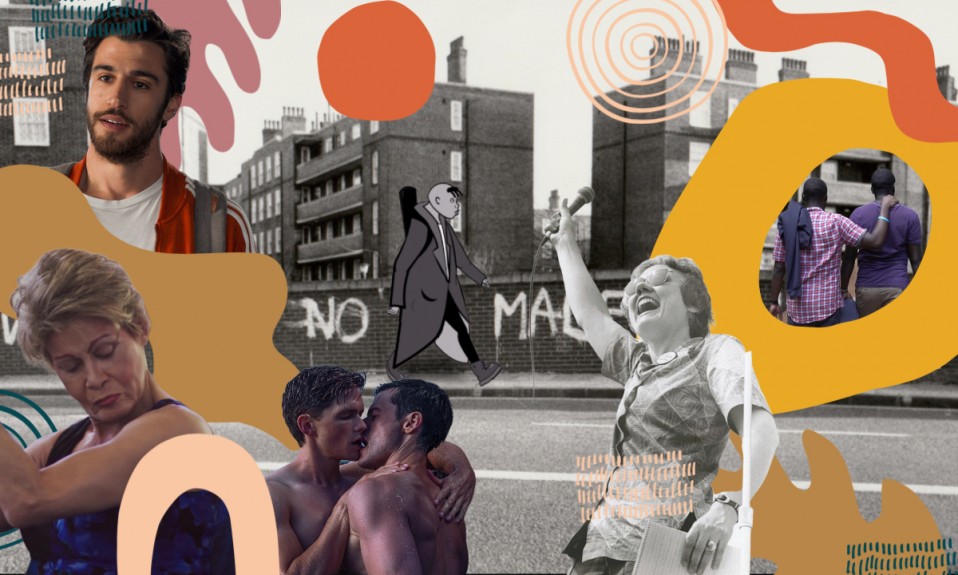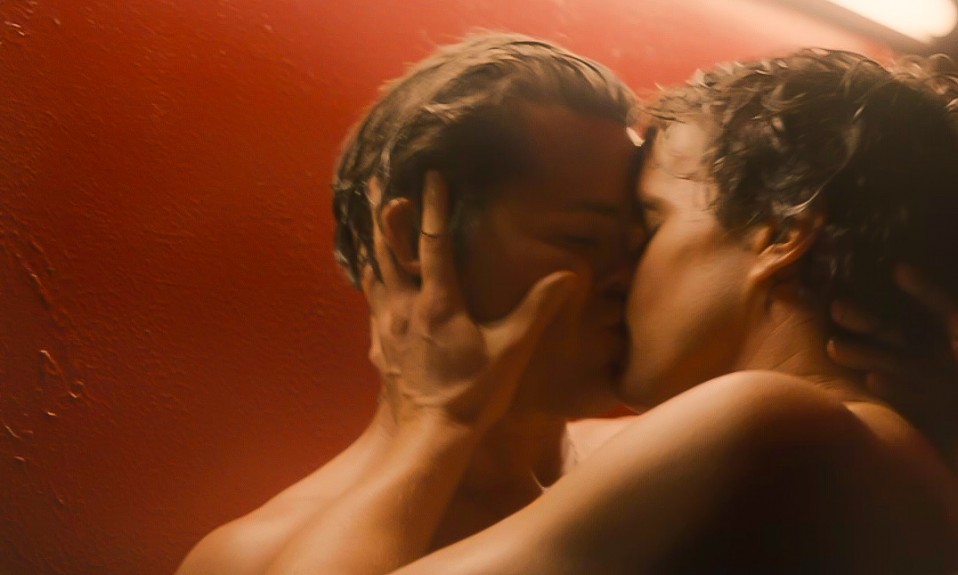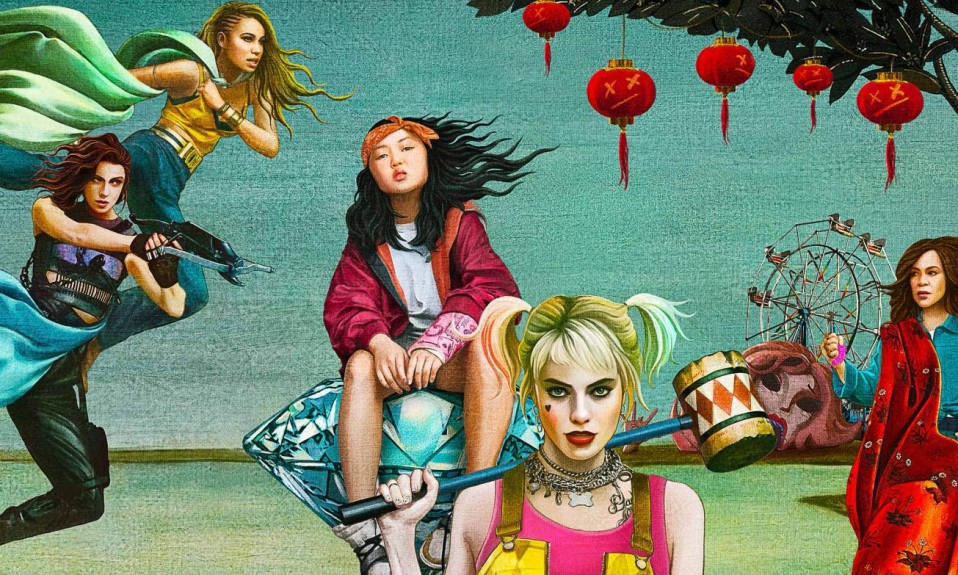Anyone who knows me will understand that Christmas is not my thing. I do not get swept away in the magic, I rarely listen to Christmas songs unless they’re sad and gloomy (‘River’ by Joni Mitchell, come through!), and I don’t spend December watching Christmas movies. In fact, I have a list of only five movies I find acceptable during the season of giving: Die Hard, The Family Stone, Batman Returns, Carol, and Tangerine. However, in 2020, I was willing to expand that list with Happiest Season, the latest Christmas rom-com from Clea Duvall because, well, it was gay.
The film follows Abby (Kristen Stewart) as she agrees to spend Christmas with her girlfriend, Harper (McKenzie Davis), and her family for the first time. The catch? Harper isn’t out to her parents, and for the five days they’re staying with them they’ll have to pretend to be “roommates” and hope that no one picks up the 1970s undertones of that word. Abby begrudgingly agrees, but their trip brings into question Harper’s commitment to their relationship and also brings up her past; one in which she has acted cruelly towards an ex-girlfriend and has an ex-boyfriend who her family thinks she’ll eventually marry. It pits Stewart and her queer world against Harper’s family – a wealthy, white, seemingly conservative, political family who are seeking donors for the father’s mayoral campaign.
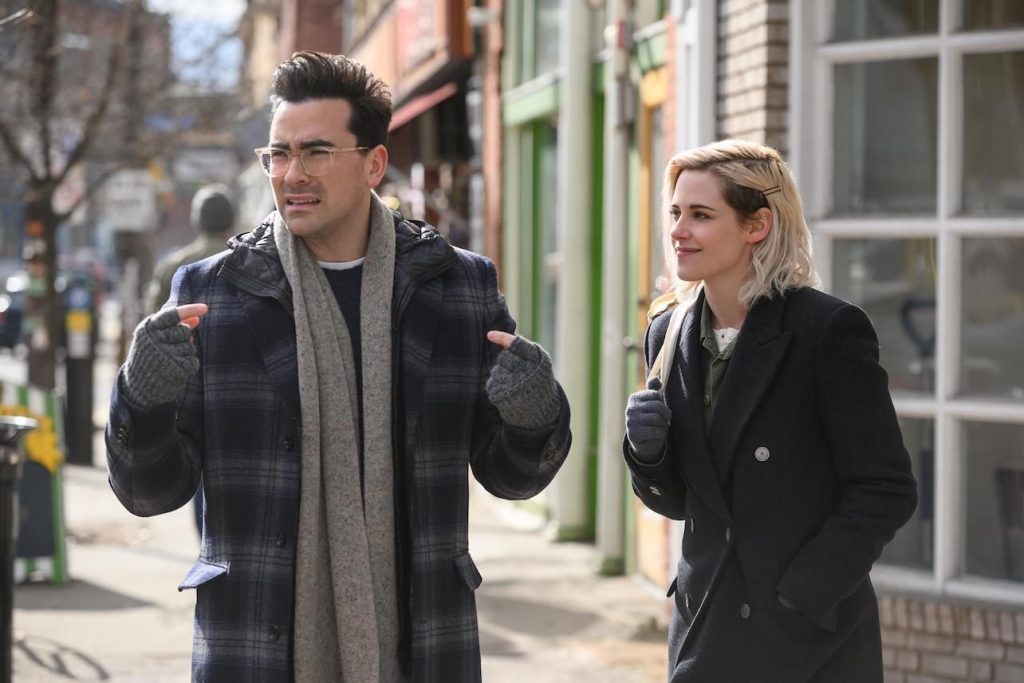
Despite my reservations about the holiday itself, I was excited for Happiest Season. Clea Duvall is a great comedic actress who I loved as Margery on Veep, and, on top of that, I enjoyed her directorial debut well enough, The Intervention, in 2016. The latter being a mid-range ensemble comedy that dealt with the breaking down of a relationship. I also love Kristen Stewart from her reckless swearing on SNL, to her fashion sense, to her nuanced performances in films like Personal Shopper, Certain Women, Still Alice, and The Clouds of Sils Maria, for which she won a César (the French Oscar) and became the first American woman to do so. When you add to that a cast that includes Aubrey Plaza, Dan Levy, and Mary Steenburgen I was entirely sold. After watching it, however, I’m not so sure.
Whether or not Happiest Season is “queer” enough isn’t a conversation I’m interested in having any more. I think there are valid conversations to be had about its whiteness and its cis-ness, though. While art can be inherently political and, through its casting and narrative it does subvert typical norms, it still conforms quite neatly to a heteronormative ideal – with Abby planning to propose to Harper at Christmas despite her friend John (Levy), reminding her that she’s “engaging in one of the most archaic institutions in the history of the human race.”
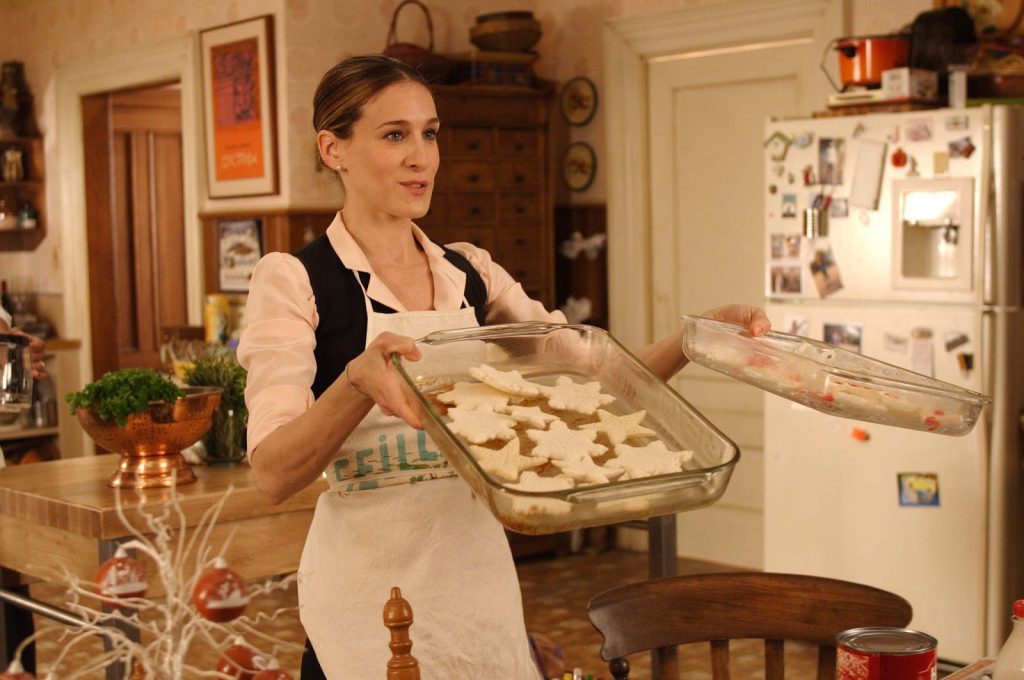
In the film, even though the spectre of heterosexuality looms large, the two leads are lesbians (well, one of them might be bisexual but the movie doesn’t offer much in the way of this interpretation.). In the past, mainstream Christmas movies have allowed queer couples only to exist as supporting characters. In one of my acceptable Christmas movies, The Family Stone, Tyrone Giordano, and Brian White play a gay couple who are members of the titular family. Their sexuality, which is used occasionally to develop the stony and lost-for-words Meredith (Sarah Jessica Parker), is not often discussed (but, in a movie that features so much bed-swapping and romantic drama it is sad to see them sit it out.)
There is no straight romance to counteract the gay in Happiest Season and there is no straight drama to hide behind. Yet, it does feel like it’s accessible to both gay and straight people. Usually, that would bother me. It did with 2018’s Love, Simon, or even, a few months ago, with Supernova, the Colin Firth and Stanley Tucci two-hander. The desire to appeal to straight people by either offering a diluted version of queer people – i.e. basically classically handsome straight-acting white people – or (spoilers for Supernova) killing them off so audiences can feel sympathy for them. God forbid straight folks might have to empathise with the gay experience that doesn’t involve death!
Anyway, I’ve digressed slightly, but what I mean to say is this; Happiest Season is potentially a step in the right direction but it depends how you look at it (well, apart from the overwhelmingly white part, that’s bad from every angle.) Stewart, an openly queer woman, shines in all her pantsuit, beanie hat, and sneakers glory. She is funny and awkward, while able to capture the difficulty her character has with being forced back into the closet. Also, spoiler alert for Happiest Season, no one dies.
I might watch it again next year, if not just to see the palpable sexual tension between Stewart and Plaza (I know I’m not the first to say it, but those two should be together.) It may even open a conversation with people who might not normally engage in that kind of discussion, about how the holidays can be difficult for queer folk who often have to hide who they are.
I suppose, it’s time for me to stop expecting so much from mainstream movies. I still will continue to be vocal about the number of queer characters that die, but I don’t think it’s time for me to give up on seeing myself in them. Instead, I’ll reframe them gateway films (so they don’t make me so mad!)
Gateway films, like gateway drugs, are a low-level intro into something larger. Happiest Season is sedate enough that it might creep into the average home but, just like Love, Simon it’s queer enough for young folks to get it. These films might reach the young queer kids who aren’t able to see the more radical or bold queer cinema such as Kajillionare or Ammonite (both of which premiered this year too.) It might act as their gateway to seeing themselves on screen, which in turn will feed a curiosity in other representations. It might lead them to bigger and better things.
Also Read: How Film Changed Me: On Nicole Kidman


